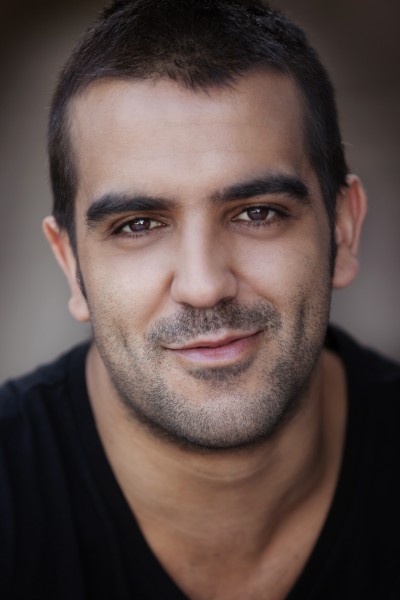Interview | Stephen Tannos
Interview by Chris Duncan
It’s hard to believe that it has been eight years since Stephen Tannos came to our attention on the second season of So You Think You Can Dance, introducing Australia to his frenetic, high-energy dance style. He has since channelled this intense creativity into his raw choreography and entertaining short dance films and now the rest of the world is also learning about the talented Stephen Tannos.
DanceLife Director Chris Duncan caught up with Stephen to ask him about his career so far, future directions and his opinion and advice on the dance industry at present.
Q: What have you been up to lately?
“It’s been a crazy 6 months actually I’ve been travelling quite a bit. I went to Japan just as a holiday, but while I was there I was able to pick up a bunch of classes and teach at a few of the studios over there. That was really cool… getting amongst that culture of dance and to see how they operate because it’s a completely different to Australia. Australia and Japan both have their amazing things but it’s such a vast difference… and I think I got a little bit of a following which was awesome.
“Then I went to China and I actually danced! I dusted off my dancing boots for a big corporate event for Dein Perry. So it was just me dancing on my own and we created this contemporary solo… but it was created along with digital animation so the whole floor and the whole back screen had projected images. Every time I’d step my foot on the floor it would explode so it was really cool. From there I came to Australia for two days and then went to Berlin.”
Q: What were you doing in Berlin?
“I was working with the Berlin State Ballet School. They saw my video of ‘Run Boy Run’ which I shot inside a dance studio for Australia’s So You Think You Can Dance and later got onto the show. They saw that, emailed me and said they really love what I do! … they have a studio of ballet dancers and they wanted to try something different and they thought I could cater towards that. The next day they booked my flights and there I was! They loved and bought me back in February… I’m actually going to create a 10 minute piece for them … craziness!!
Q: What other areas have SYTYCD it opened up for you?
“There were two components of So You Think You Can Dance … I mean there’s obviously the competitor component and also the choreography component. I was on the second 2009 season … Tahlia Fowler won … and there was Amy Campbell, Timomatic, Ben Veitch, BJ Rorke … a pretty good season. Definitely that experience as a competitor that was the springboard to everything that was later to come. I wasn’t even choreographing at that point but it was through that show I found that I had a bit of a unique voice and I was able to actually express that to others.
“As a choreographer I guess it spring boarded me into something a little bit higher… People saw me in a different light as a professional choreographer. I think that’s the toughest thing, I think everyone can choreograph but then to be able to put that into a professional context and to know how to work on TV and under those time constraints with the stress … to make it commercially palatable. And trying to do something that’s different enough but still appealing to everybody. I think that’s what I was really able to learn to do on that show – I was able to hone that craft.
“My stuff used to be very weird and it was relatable to a very niche audience so what I’m enjoying now is trying to take that into a broader context because I think there’s no point unless you’re trying to appeal to a bigger audience because… think it just stops at a certain point as opposed to fully growing.”
 Q: You have also moved into the dance film area?
Q: You have also moved into the dance film area?
“First was my ‘Run Boy Run’ submission that gave me quite a few opportunities. Then I made ‘The Process’ and ‘Dance Off‘. They have also presented really big opportunities for me as well. I think we just live in such a social media driven generation that if you don’t learn how to play to that market then you’re kind of neglecting a massive part of an opportunity for yourself because that’s where everything is nowadays. And it’s constant access … you can put something up and next day Madonna could have seen it!”
Q: Was your collaboration with Morgan Choice your first show as a professional choreographer? The ‘Tannos & Choice’ Show?
“It was definitely my first go at having my work seen by that many people in an audience and having ticket sales! I still remember that moment when Marco (Panzic) came up to us at dinner and told us he had a dream about producing a show with me… that became The Dream Dance Company! For me that was a really big affirmation that what I do can be widely received because the reaction to that show was pretty large.”
Q: So what have you got in the pipeline?
“Well there is the Berlin thing in a month’s time … and I’m in the very initial phases of all a new show… I can’t say too much about it but I have been getting creative. I think it’s time for me now to just produce my own thing. It will be completely me falling on my sword for it 100% percent because in the past I’ve been affiliated with Marco both times… which has been great but I think I’m ready to be a bit more ready to be a bit more risky.
“I want to go to film school this to do a short course as I want to understand film a bit more. I love dance… it will always be there for me … but I want to explore other mediums to move dance in a different direction and a different light. I love the camera, I love directing the camera, I love all things like that and coming up with big creative visions that aren’t just about the dance as a product.”
Q: Will this create more space and opportunities for dancers within the industry?
“We live in a time where the work isn’t like it used to be… there’s a much smaller window of actual solid work out there. Like, even 5-6 years ago when I was doing most of my professional dancing there was a lot more opportunity, there was a lot more gigs, there was a lot more TV shows that had dancers now there’s just the one that happens every year and who knows how long that will last for. There was corporates all the time, dance was something that was really appreciated. “
Q: There’s not a lot of corporate work these days?
“No, there’s like the 1, 2 or 3 big ones a year and it’s usually the same kind of group of dancers contracted anyway. Because the full time schools are becoming bigger and bigger, and the window is becoming smaller and smaller, there needs to be other avenues. There needs to be more people who can spearhead those kind of things otherwise it’s going to plateau.”
Q: What were the highlights of your professional dance career before you went into teaching choreography?
“Funnily enough, the first thing I ever did I was Cats the Musical! I really went to that audition as a joke I knew nothing about the show except that everyone played cats. I didn’t have great technique or anything, which is funny because it was a very technical show with all the 80’s jazz. The director really seemed to like my character and I was right for a certain part. I played Tumblebrutus! There was a lot of flipping but I was only 18 so it was fine and it was so fun. So, straight out of high school I did Cats that was for 18 months and toured Asia – I was so lucky. I could have gone on but I just got to a certain point where it was enough.
“Pretty much straight after Cats came the So You Think You Can Dance auditions… and I got through to the show. After SYTYCD they cast Fame the Musical. They wanted a lot of talent for that show as a good selling point, so a bunch of people from my season and the season before worked on Fame – like that Marco Panzic, BJ Rorke, Charlie Bartley, Timomatic, Talia Fowler, and Amy Campbell.
“So I did the two musicals, SYTYCD TV show and then I danced a little bit on The Voice… I also danced for Ricky Martin, Jessica Mauboy, Ricki Lee, Carmen the Opera. There was a good variety of work going around at the same time… it was insane!”
Q: What is your advice to up-and-coming talent about getting work in the industry now these days?
“I think we touched on it before but to embellish… you’ve got to have a forward thinking mind. I have my struggles too … I get so proud of myself when I’ve done something and I will sit down and celebrate it for a week and I’m like ‘wait I can’t do that, what’s next?’ That’s how you’ve gotta be… you can’t ever stop and smell the roses. It’s not an industry that’s 9-5… you don’t wake up, you don’t have a set amount of hours, you don’t have a clear goal that you’re working towards.
Q: So you are only as good as your last gig?
“Yeah, you do 20 good things and 1 horrible thing and then you’re spending the next 20 things trying to work yourself out of that. It’s tough, it’s really tough for that reason.
Q: Are you a bathroom singer Stephen?
“Hell yeah I’m an everywhere singer! My girlfriend hates my voice though. Every time I sing she shudders. I used to take pride in my singing but I’ve just damaged my voice over the years from teaching and just being an over excited human. I sing a lot in the car too.
“I love a bit of Queen and Stevie Wonder… Bohemian Rhapsody is always good. They’re out of my range though as I don’t have a very good voice.”
Q: Is there any other message you’d like to get out to the dance community?
“It’s the eternal struggle of just keeping going, and understanding this industry has its highs and lows, and learning to ride that a little bit. No matter what you’re doing… even if you’re a young dancer competing in eisteddfods you’ll win one eisteddfod and then the judge will hate you at the next one. So learning how to pick yourself up from those times and understand that it’s a wave and that people all have subjective opinions.”
“Don’t take anything too personally … but it’s so much easier said than done. As artists and dancers we’re all sensitive beings, it’s like we’ve all been put in the wrong industry because you need to have a thicker skin than most industries but we’re all at heart, vulnerable and weak. It’s also what makes us so beautiful and great to, so it’s balancing those two things. You need to be right in the middle… you need to have connection to people but you also need to be able to talk to a client or another colleague about something you’re not happy with, as there’s a lot of that kind of stuff.
“Balance is the word.”
*****
WATCH STEPHEN’S SHORT DANCE FILM “RUN BOY RUN”













